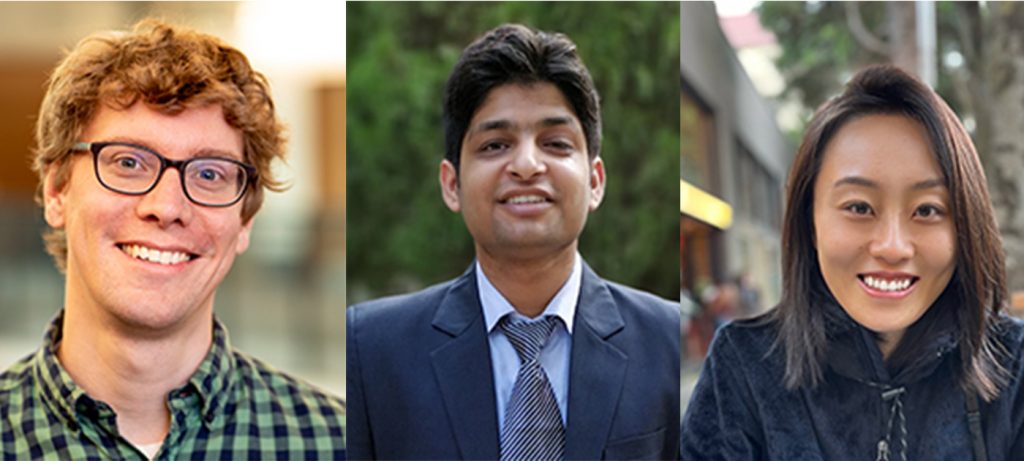Allen School Ph.D. student Ashish Sharma, professor Tim Althoff and incoming Ph.D. student Inna Lin won the Best Paper Award at the The Web Conference 2021 (WWW) for “Towards Facilitating Empathic Conversations in Online Mental Health Support: A Reinforcement Learning Approach.” In the paper, the group presented computational methods for improving empathy in online mental health support conversations. Their work was chosen from among 1,736 submissions to the conference, which focuses on advancements in the technologies supporting the World Wide Web and their impact on society and culture.
“We felt the work is going to have a significant impact on the community based on the algorithmic approach and the very thorough experiments that were done in the paper itself,” said Kira Radinsky, the Best Paper Award chair. “This is the direction we felt is going to bring the most value to the community.”
The paper, which was co-authored with UW Department of Psychiatry and Behavioral Sciences professor David Atkins and Stanford University Department of Psychiatry and Behavioral Sciences instructor Adam Miner, addresses improving web-based mental health conversations in online peer-to-peer support platforms, which could help improve access to treatment and reduce the global disease burden.
“We describe a system that can give feedback to help someone express empathy more effectively when supporting others based on natural language processing and machine learning innovations — reinforcement learning for dialogue,” said Althoff, who directs the Allen School’s Behavioral Data Science Group. “This is hugely exciting as this work has been a big step towards one of the biggest and most meaningful goals in my research for a long time.”
The team, which was based on a collaboration with the UW and Stanford Medical Schools and the largest online peer-to-peer support platform worldwide, TalkLife, found that online mental health conversations could have significantly more empathy than what is currently expressed. To facilitate conversations with higher empathy levels, which is key for providing successful support, they introduced a new task of empathic rewriting. Their approach employs artificial intelligence (AI) tools for identifying and improving empathy to effectively increase the level of empathy in the chat posts.
As part of this work, the researchers introduced PARTNER, a new deep reinforcement learning agent that learns to make edits to text to increase empathy in a conversation. Through a combination of automatic and human evaluation, the team demonstrated that PARTNER is capable of generating more empathetic, specific and diverse responses than what is currently being shared on TalkLife or what current machine learning models can provide.
“Rarely does mental health research have the practical application and potential for impact that we believe this research will have,” said Jamie Druitt, CEO of TalkLife. “This proposed research directly addresses real challenges and can be implemented to create measurable change on mental health platforms.”
This research has been supported in part by a Microsoft AI for Accessibility grant, the Allen Institute for Artificial Intelligence, NSF grant IIS-1901386, NIH grant R01MH125179, and Bill & Melinda Gates Foundation (INV-004841).
Congratulations Ashish, Tim, Inna and the rest of the team!


